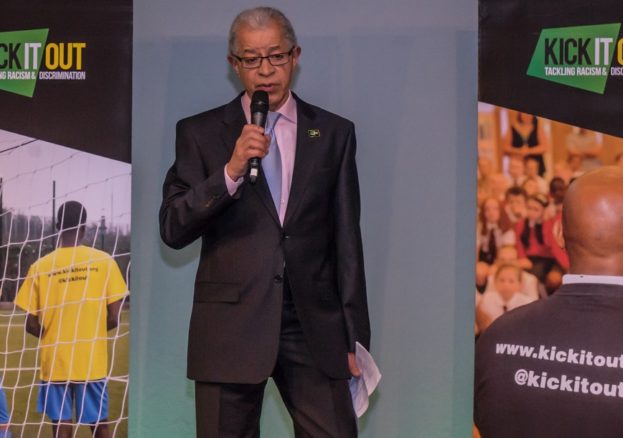
Over forty year’s, Herman’s continued success in not only highlighting racial inequality, but challenging it too, has seen him go from a figure within the framework of British Politics, to a champion of the Black-British community. However, it is a title he feels has been misappropriated.
“I have never claimed I speak for Black people as no one has given me the authority to do so.” He tells me. “I talk about my own experiences and those of people who I know and I utilise every opportunity to help empower people to be confident to speak up for themselves.”
In the past, this mantra of public empowerment has seen Herman become the first of our kind in a number of unprecedented roles. For example, Ouseley was the first Black Race Equality Adviser in Local government for Lambeth in 1978, then became the first Black Policy Advisor for Ethnic Minorities with the Greater London Council in 1981. The next title he would take would be as the first Black Chief Executive in a local authority in England with the former Inner London Education Authority in 1988, followed by the CEO of the London Borough of Lambeth in 1990, before finally becoming the first Black Executive Chairman for the former Commission for Racial Equality in 1993.
These are not the only roles that Lord Ouseley of Peckham Rye has taken on over the years, nor are Black people the only people he has had a hand in helping, as his influence has helped to form equality measures in Gender, Disability and Religious injustices too.
Yet to confront Herman on his achievements comes with a stern reminder. “This is not about me, it is about us.”
The words ring loudly because the point behind them is poignant.
“We have to remember that unity is our strength. Too often we think we have beaten a Racist system by putting a Black person into a role, but find that someone creates a backdoor so that the people who they want to get a role, will get it anyway.”
This humbleness coupled with a no-nonsense, almost uncompromising approach to do everything ‘we’ can is somewhat intimidating, as you find that his arguments for a collective community have a striking sharpness to them. This sharpness is one that Herman attributes to the community of his childhood, one that revolved around communal living spaces, where entire families shared a single room in the capital city of the Kingdom that colonised 90% of the world.
It is a living condition that gave a radicalised edge to much of the Windrush generation, as overt prejudices reminded you about how hard it was be to be seen and treated equally.
“Whilst we have worked hard to overcome the barriers of prejudice, we have failed to prepare the next generation of young, Black leaders.” Herman tells me. It is a failure he accredits to people exercising their prejudices covertly, which has created a dichotomy in opinion between those who have seen conditions improve, and those who have not.
“Before, the simplicity of talking about race was its strength. ‘Black’ referred to the African, Caribbean and Asian communities. And whilst it is great that people have formed their own identities, it has made the interests of those communities individual as well. So when we previously talked about minority communities, it included everyone who was non-white, but now, some people choose to exclude themselves from that narrative.”
The irony that some would want to exclude themselves from the conversation around inclusion has not been lost on myself, nor Ouseley who makes an important distinction.
“When you talk about race, you talk about every other form of discrimination too. Sexism, albinism, religious intolerance, homophobia; because you can be a Black man who is prejudice towards disabled women.”
By recognising this distinction, it very quickly becomes apparent as to why advances in eradicating racial prejudices has been slow, because whilst an employer may be happy to hire able bodied, straight, Black men, everyone else is left behind. Then, the communities which go on to fight discrimination against Women, LGBT+, disabled and different-faith groups, have a fractured foundation to make their fight.
But Herman Ouseley knows that by fighting one injustice, he can help the others and it is partly due to this realisation that Kick It Out has been so effective.
Initially founded by Herman in 1993, following the wake of Stephen Lawrence’s murder and the establishment of the Commission for Racial Equality; Kick It Out has covered every element of discrimination that has brought itself to the world of Football.
Initially tacking the racial abuse of top-tier players, Kick It Out has managed to reach every blade of grass, from the Misogynistic practices that prevented women from becoming top flight Referees and coaches, to helping establish Disabled, Multi-faith and Gay football leagues across the country.
Yet forty years, almost one hundred different roles and the ordination as a Lord later, the true impact of Herman Ouseley and his allies is impossible to quantify. So to quantify his legacy, which is to empower us so that we may speak for ourselves, is also immeasurable; which is what the best legacies are- immeasurable.
